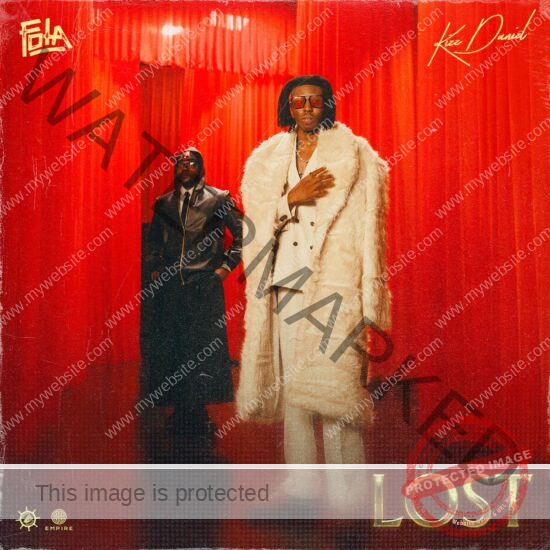Flavour Net Worth 2025: Biography, Awards, Family Life, Wife, Children

Flavour N’abania, more commonly known simply as Flavour, is a well-known Nigerian musician famous for his enjoyable rhythms and melodies. Born Chinedu Okoli in Enugu State, Nigeria, he blends traditional highlife music with an Afrobeats-style sound. Most of his work is performative, punctuated by dynamic dances that add character to his sound. He’s an integral contributor to the evolving ‘world music’ scene that borrows from the ambiguously large, global highlife scene.
Flavour makes highly textured music about love, celebration, African heritage, and new horizons. Most of his songs feature lyrics about obviously African things, like African women and African geography, etc. His style is also heavily influenced by the foundational Afrobeats and highlife musicians of the 1960s and 1970s (i.e., leading to the ’80s and ’90s revival), like Osita Osadebe.
Simultaneously, his newer work is not “African music” akin to the above genres, but something starkly different that needs to be considered on par with contemporary American and European pop music.
Education
The young Chinedu Okoli attended primary school in his local village where he was first introduced to his love of music. In the midst of a culturally rich community, young Flavour was exposed to various styles of music and the traditional sounds of Africa. The lessons learned in primary school went far beyond the basics of reading and writing. The experience nurtured his love of music and drove home the importance of discipline and hard work. These were the formative years that set the stage for everything that was to follow.
Throughout the Nigerian equivalent of high school, Flavour continues to develop his skills, performing in the choir at his Catholic school and singing in local talent shows. Never far from music, he continued to study with his teachers, learning how to apply the lessons of the traditional school environment to his pursuit of a career in the arts. Flavour continued to study the basics but saw an almost immediate value in collaboration and the power of creativity as he collaborated with other dancers and singers on presentations for his school community.
His university studies gave him an opportunity to study the art of music formally. This exp[erience] exposed Flavour to a level of technique and a comprehensive study of music theory and performance that he might not have explored previously. This level of exposure to the study of the discipline and the rich history associated with a career in the arts gave him much-needed connections to the music industry and professionals who continue to be a part of his larger professional community today.
The genius that is Flavour N’abania extends far beyond his ability to perform his music. He is a true testament to the transformative power of quality in education and the symbolic “everyman” whose life has been forever changed thanks to the power and impact of a rich life spent in sincere and serious study. Like many artists, Chinedu found his own medium through which to bridge the structured traditional classroom, what he was learning about the study of music, and the traditional sounds of the music that inspired him.
Musical Journey
Flavour N’abania is one of Nigerian music’s iconic figures. His local performances, in the beginning, alluded to someone with so much to offer. He had it all – from the blend of highlife with R&B into a contemporary African sound to his loyal fan base always eager to hear more of him. He had not only mastered his stagecraft, he was also endowed vocally, and his charisma was charming. On this album, Flavour’s demonstrations on most of the tracks captured the following: his skillfulness at crafting a unique niche for himself, his deployment of aesthetics, and how he sounded rhythmic just like his contemporaries in the Nigerian music industry of the mid and late 2000s.
The album N’abania was pointedly made for the following: dance enthusiasts, party-goers, and fun-loving fans of a young artist who does pop music tinted with the local “flavour” of the legendary highlifer Ali Chukwuma. This essentially explains why some of the tracks on this album are the infusion of highlife into a pop sound that is commercially viable. This eponymous album is a double entendre for the “flavour” that its highlight tracks added to the world of liking fans of Flavour N’abania as it dropped as a bombshell into Nigeria’s discography. N’abania is the locus of the reasons highlife music will remain relevant as long as its renditions keep coming in variants in the 21st century and beyond.
The musical history of the period that followed Nigeria’s decolonization would always remain incomplete without making references to E.C. Arinze who ruled the highlife music scene of the 1950s and 1960s. Early users of the pidgin language in highlife music had him as a forerunner in a trend that particularly made the listeners to understand what the highlife performers of his time sang about at performances. Apparently, that’s the same fate that befell this Flavour N’abania’s album – music folks wouldn’t stop talking about its essence in no time because it was the bomb!
Highlife Fusion
Flavour is a mainstay of Nigerian music, popular for his ability to combine classic highlife and contemporary Afrobeats. This blend is usually a good way to express how extensively skilled an artist is. It also gives an idea of what Nigeria sounds like. Highlife is recognized by groovy, jazzy horns, highlighting rhythmic guitar, and beat arrangements, which form the basis of Flavour’s sound. The Afrobeats then add some spice and plant it firmly in the ears of the global audience. A nice session of young meets old, and a chance to provide music that must be for everyone.
Lyrically, Flavour is a great role player. He practically sings about everything you could think of. Predominantly, the lyrics are spun tales about love, they’re centered around culture, or they’re in the form of gyration songs. He somehow manages to serve a blend of feel-good music across a 15 or more track list album of songs saturated across different Nigerian dialects and some famous proverbs. Listeners are treated with lyrics like it’s the masquerade climbing season, the time for making snow, following him down to the love department, or attending a surprise circumcision ceremony. That’s how much variety there is in the subject matter of his lyrics. However his lyrics are heard or interpreted, though, they are certainly relevant to the average, working, or listening class who make up a large section of his in-country Nigeria fan base.
Expressing a common bond of existence makes more sense, and, because people have a sense of belonging anywhere, the lyrics give off a cool community, “I-belong-here” vibe at his shows. Music that promotes togetherness? A great thumbs up, for sure.
Album Releases
“N’abania,” released in 2005, was the debut album of the Nigerian Afrobeats sensation, Flavour. The album was the first to feature his mixture of highlife and modern-day even though mid-2021 is making “modern day” look crazy different) tunes. It was his first—the starter of his discography—the first of what would later, we are sure, be a long discography filled with everything we know him for: culture, amazing vocal ability, and all. It was an exciting debut album, through and through.
“N’abania” saw Flavour making “Sawale,” a popular tune by late highlife icon Cardinal Rex Lawson, his; this would be a sign, as already mentioned, of the early tunes crooner that is Flavour N’bania, emerging into a compassionate lover boy—effortlessly mixing tones of modern culture with deeply traditional cultural elements. In years that have come after—including “Blessed” (2012); “Thankful” (2014); “Ijele The Traveler” (2017); “Awele” (2018)—he would, for the most part of the first two years of his career, make an entire discography out of love songs, lustrous and sensual-sounding, with elements of Igbo cultural music.
This leads us to something of heavy cultural significance, “Ada Ada,” a highly successful single off the album, “Blessed.” Again, we get to see Flavour – even though produced by a highly, arguably the highest “commercial” Nigerian music producer, MasterKraft! – purposefully transcend what it means to be pulled by the largest part of your fan base, deciding to make 50% of this one a highlife number: with trumpets and the rest of the boys singing along, and of course, his resilience at singing in Igbo mainly; making a “Give it all to my wifey wedding day” music jam.
Flavour doing more of this in the future does not seem to be a concept we will not dance to, with joy and exhilaration in our steps. We look forward to seeing him do what he does. A subsequent single, “Time to Party” shows him thinking more and more about reaching a broader audience, which in itself is an idea we love—a driving concept that, subtly, is further opening the emphasis Fuse AID put out in his golden single. It is definitely not a new tune singing on Flavour’s resume, but it is abundant. This song will pull off an almost “miracle,” being the best thing they heard that year… and rightfully the culture just is very present in the video to accompany the song: further giving off that “I am here, representing Africa musically” demeanor.
Flavour going forward should/hopefully will be doing more jams from “home” and “abroad,” seeing that we already know the latter sound – he has proven on a couple jams possessed, that he is looking to do more to attack much bigger, and newer, ~segmented audiences; and while that’s at it… a whaler of something very interesting is happening on the station(s) – starting in 2020.
Collaborations and Global Reach
“Flavour” is a name that has become synonymous with the diaspora promotion of modern highlife music in and around Nigeria. Here are three reasons we love him:
He’s intentional about his collaborations With each album or single, Flavour strategically aligns himself with popular Nigerian and international artists to not only change the resulting sound of his highlife music but also to garner a larger listening audience. Some of these artists include Tiwa Savage and Phyno (bringing a sort of “Yoruba meets Igbo” and “highlife meets hip hop” vibe).
Beyond Nigerian borders, his music has hit the streets of Guinea, Mali, Niger, and Cameroon like wildfire, where many of the local residents are proud mega-supporters of his music!
Yes, even some Americans and Caribbeans know about him (or at least they recognize his music).
YouTube and prime music channels like SoundCity, MTV Base, and Afropop have played a significant role in displaying the visual representations of the primarily highlife and Afropop music that he sings.
Stage Presence and Live Performances
“Performing live” is a concept that extends far beyond the music for Flavour. His performances are high-energy affairs, exist at the junction of music and dance, and are set apart by the level to which they “involve” those who came to watch him, to the point that, at his best, “audience” seems inadequate as a descriptor for what you are when you’re in his presence.
In each space in which he performs—whether that is among several dozen bands and musical artists in the lineup for a massive, multi-day music festival, or in a private venue with a list of a few hundred names on the door, and with palm wine and Star beer being liberally poured in every corner—, what you are in this crowd is a participant, and Flavour is the “party-ple” in “participate.”
His live band is talented and extremely well-rehearsed, functions as a literal extension of him, and is able to follow the leads he invariably takes the rare-to-see show, aurally, to interesting places.
He is accompanied by male and female performers (and his band also backs him vocally.) They dance in freeform, not only delivering incredibly entertaining choreography but—accented by his backup singers’ powerful choir-quality performances—it fills the stage with sound and couples that with dance, infusing the “experience” of seeing Flavour live with a raw and buzzing “energy.”
Brand Endorsements and Philanthropy
Flavour is a popular musician from Nigeria who has done very well with brand endorsements and is partnering with companies he truly resonates with in as many as four different categories, from beverages to fashion to tech. I can guess why—everyone in Nigeria and beyond knows him, and he’s a staple of African entertainment. He stays true to his roots and very likely retains some power of decision-making within the companies in some form and influences the direct outcome of the brand he has attached himself to, leading the creative direction of the brand and the market they have tried to touch.
He is widely known as a philanthropist in Nigeria for his passion for…you guessed it…giving back to the community. From gifting personally to charitable organizations, to helping jumpstart education with his own money for the country, and to promoting health initiatives and fighting poverty and other issues, he is using his money, equity (physical and non-physical), and time to influence the “up and coming” of his home country and has used his own efforts to spark more development and aid that would not have happened if he had vigorously stuck to a “less-popular” or “more-adamant” traditional music route with fewer fans.
Personal Life: Wife and Children
The celebrated Nigerian singer, Flavour N’abania, is at the head of a large and active household, numbers in which reflect his own colourful working and private lives. His children number three, and he speaks of each with evident pride and joy. They are more, too: Flavour N’abania maintains an active Instagram account, wherein he often posts communication of his loved eldest two ‘princesses’. He occasionally mentions his daughters elsewhere, too: these pretty young children occupy much of the Flavour ‘public space’.
Flavour is public, too, in courting—or, at the very least, of being seen in the company of the model and entrepreneurship graduate, Sandra Okagbue. In a few instances, this has been at private or family gatherings, events otherwise held behind firmly closed doors. That the two have married, though, remains for now mere speculations. With the couple having yet to ‘come out’ one way or another, the frequency of these mutterings ascribes the greatest doubt: perhaps these ought to be interpreted as a series of well-publicised investigative guesswork.
Flavour N’abania is the father to another child, too—though not in the more usual fashion. Some years ago now, he accepted the challenge of playing a paternal role to the young and blind Sierra Leonean, Semah. Flavour N’abania was first introduced to him in Freetown on an evening following a public liaison there in the cool of a late autumn. Semah’s mother asked that Flavour listen to her son of eight or nine years singing, just once—all that in her eyes she sought of the man by way of an endorsement of her boy’s innate talent for him. And that was that.
Net Worth
Flavour is a Nigerian highlife and contemporary artist. His music has enjoyed broad acceptance both locally and globally, and he’s often in high demand when it comes to live shows. Flavour net worth is estimated to be around $2 million.
Apart from his music careers, he has had an impressive number of endorsements. He’s graced billboards for brands that sell different products and almost any conceivable service. A complete list could span beer brands (Harp Beer and Life Lager), butter, energy drinks, sports betting brands, fashion labels, and lots more.
He has also most likely invested a ton of money in enterprises that throw off regular cash flow. He wouldn’t be worth that much if he didn’t. People know about his documented investments in real estate (which are common knowledge). He must have passive cash generators in other places, like royalty payments from his songs and other business arrangements that are top secret.
Flavour N’abania, or simply Flavour, invigorates the Nigerian music scene by taking elements of traditional highlife and interpreting them in a thoroughly modern way. Since he began his career in Enugu, Nigeria, the artist has developed a unique style and built a discography that includes numerous familiar hits, such as “Nwa Baby” and “Ada Ada.” In doing so, he’s been able to develop a unique style that both his Nigerian fanbase and his fans in the diaspora can enjoy. The audience appreciates his music because they can relate to it:
Throughout his journey, he’s been able to establish himself as a strong cultural ambassador within the industry. He weaves elements of narrative to tell rich stories that provide an entertaining yet nuanced take on the Nigerian experience. During many of his performances, he includes elements of Nigerian dance in order to promote familiar elements of Nigerian culture to audiences around the world.
Support for his “Flavour of Africa” movement can be seen through strong international collaborations that promote the world music industry. They serve as evidence of the power and universality of music as an art form that anyone can enjoy, regardless of their background. His discography is large enough for you to explore so that you can find elements of his music that resonate with you.




![[DOWNLOAD] Working For My Good – Anny](https://gospelmusicbase.com/wp-content/uploads/2025/05/Working-For-My-Good-Anny.webp)